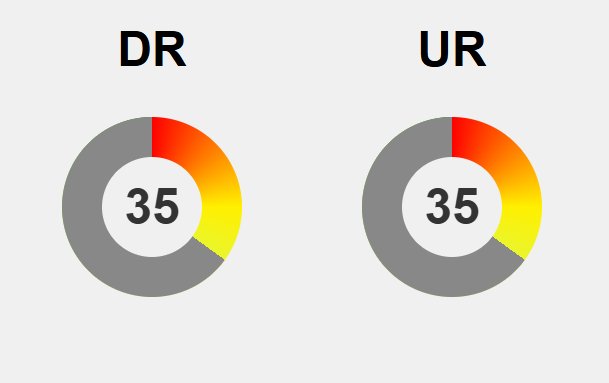Beneath Cancer’s nurturing and empathetic exterior lies a complex world of hidden vulnerabilities shaped by fears of rejection and abandonment. Their intuitive, caring nature makes them natural caregivers, yet many conceal deep scars and insecurities rooted in past betrayals and unmet emotional needs. These internal wounds often drive them to retreat into shells of calmness and familiarity, masking their true feelings to maintain control and stability. During emotional storms triggered by minor setbacks, they can feel overwhelmed—waves of sadness and anxiety crashing silently within. Recognizing the delicate balance between their resilience and fragility is essential for genuine understanding. How can we support Cancer in embracing their vulnerabilities without fear? By cultivating patience, compassion, and safe spaces, we unlock their profound strength—their ability to love fiercely, heal deeply, and grow beyond their internal storms. Isn’t true strength born from vulnerability?
Unveiling Cancer’s Hidden Emotional Depths
Cancer is often seen as one of the most nurturing and empathetic signs in the zodiac, and that reputation is well-earned. They have a natural talent for sensing and understanding the emotions of those around them, almost like an intuitive sixth sense. This deep emotional awareness makes them excellent caregivers and loyal friends, always eager to create safe spaces where others can feel supported and understood. But beneath this caring exterior lies a more complex and often hidden emotional world.
While their kindness and sensitivity are clear strengths, they also carry vulnerabilities that aren’t immediately visible. Many Cancers harbor fears of rejection or abandonment rooted in their intense need for security. These fears tend to stay tucked away, quietly influencing their behavior in ways they might not even realize. Past betrayals or neglect can leave scars that make trusting others difficult, prompting them to develop protective mechanisms. They often mask their true feelings behind a calm or nurturing front, aiming to keep their inner wounds hidden from view.
Their sensitivity, while a gift, also makes them more prone to feeling hurt by minor criticisms or perceived slights. Even small comments can trigger waves of insecurity, echoing past disappointments and fueling doubts about their worth. To shield themselves from further pain, many retreat into their shells, withdrawing inward to process their emotions away from the world’s gaze. This inward turn isn’t a sign of weakness but a way to control their vulnerability and maintain a sense of stability.
Their internal struggles are often kept under wraps, making it difficult for others to see the full extent of their emotional wounds. Many replay painful memories long after the initial event, internalizing hurt and questioning their own value. These internal storms, triggered by minor setbacks or perceived threats, can feel overwhelming and unpredictable. Despite their resilience, their heightened sensitivity means these waves of emotion can sometimes feel unmanageable, even to them.
Understanding these hidden depths is key to truly appreciating what makes Cancer tick. Their outward strength and caring nature are often a shield for deeper fears and insecurities. Recognizing the vulnerability beneath their nurturing facade helps us approach them with more patience and compassion. It’s not just about their kindness—it’s about understanding the emotional armor they wear to protect their fragile inner world.
Seeing beyond the surface also reveals how much effort they put into maintaining their emotional well-being. Their protective barriers—like shells—are built from years of managing their deep feelings. These defenses can make it hard for others to access their true selves, but they are essential for their survival. Appreciating this delicate balance between vulnerability and resilience allows us to connect more authentically with them.
In the end, Cancer’s emotional landscape is richly layered. Their caring nature isn’t just a trait but a way of managing and navigating their complex feelings. By understanding their hidden vulnerabilities, we can offer support that truly resonates, helping them feel safe enough to be open—and ultimately, enabling them to thrive in their own gentle, resilient way.
The Secrets Cancer Keeps Beneath Their Nurturing Façade
Cancer individuals often conceal vulnerabilities that go far beyond their nurturing exterior. Deep inside, many carry fears of rejection and abandonment, rooted in an intense need for emotional security. These fears are rarely visible on the surface but influence their actions in subtle ways, shaping their relationships and behaviors without their full awareness. Past betrayals or neglect can leave lasting scars, making trust a fragile thing and prompting Cancers to develop protective mechanisms to guard their fragile inner world. They often hide their true feelings behind a calm or caring façade, trying to keep their wounds out of sight even from themselves.
Their sensitivity, which is one of their greatest strengths, also doubles as a vulnerability. While it allows them to connect on a deep level, it also leaves them susceptible to feeling hurt by small criticisms or perceived slights. Minor comments can trigger waves of insecurity, especially if they resonate with past disappointments. To avoid further pain, many retreat into their shells—emotionally distancing themselves or withdrawing altogether. This isn’t weakness; it’s a conscious effort to control their vulnerability and preserve their sense of stability in a world that often feels unpredictable.
Beneath their gentle exterior, Cancers often hide pain they believe showing openly might make them seem needy or weak. They worry that revealing their struggles could jeopardize their sense of control or their relationships. As a result, they suppress their true feelings, replaying painful memories long after the event and internalizing hurt that others might overlook. These internal wounds deepen over time, fueling doubts about their worth and amplifying insecurities. Their heightened emotional awareness makes them hyper-sensitive to any sign of rejection, which can spiral into internal storms that feel overwhelming and unmanageable.
Childhood experiences and past relationships contribute significantly to these hidden wounds. When their trust is broken or their emotional needs unmet, they bury those feelings deep within, convinced that vulnerability equals vulnerability. They crave harmony and stability so intensely that they avoid confrontation, often hiding their pain to maintain the illusion of control. This concealment makes it difficult for others to see what’s truly going on beneath the surface, leaving their wounds unrecognized and untreated. When overwhelmed, internal storms—waves of sadness, frustration, or anxiety—rage silently within, often unnoticed by those around them.
Recognizing these hidden vulnerabilities is essential to understanding the full scope of Cancer’s emotional landscape. Their outward kindness masks an internal world filled with fears, scars, and insecurities. Their resilience isn’t about being unbreakable but about managing and navigating their deep feelings with care and caution. By seeing beyond the surface, we can offer genuine support—acknowledging their pain, respecting their need for solitude, and helping them feel safe enough to lower their defenses. It’s in embracing their vulnerabilities that Cancers find the strength to heal and truly thrive.
How Cancer Battles and Manages Their Emotional Tempests
Cancer’s emotional storms can strike unexpectedly, often triggered by subtle cues that tap into their deep well of sensitivity. A harsh word, a dismissive glance, or a small misunderstanding can set off a tidal wave of feelings like rejection, sadness, or frustration. Because they experience emotions so intensely, these moments can quickly spiral into internal chaos, making it hard for them to stay grounded. During such episodes, Cancers tend to retreat inward, seeking solitude to process their feelings away from prying eyes. They often find themselves caught in a loop of their own thoughts, replaying painful memories or questioning their worth, which only deepens their distress.
Their heightened intuition allows them to sense the beginning of these upheavals almost immediately. They might feel a tightening in the chest or a sinking sensation that signals they’re entering a turbulent phase. This internal turbulence often feels disproportionate to the initial trigger, with small setbacks swelling into overwhelming crises in their minds. Their emotional landscape becomes a choppy sea, with waves of sadness, anxiety, and helplessness crashing over their sense of stability. To manage these upheavals, Cancers lean on their nurturing instincts, turning to routines that bring comfort and safety.
Simple acts like wrapping themselves in a cozy blanket, listening to soothing music, or journaling help create a sense of stability amid chaos. Developing habits such as mindfulness or deep breathing provides a way to slow their thoughts and gain perspective, preventing their storms from spiraling further. Over time, these practices become vital anchors, helping them navigate their internal turbulence more effectively. Support from trusted loved ones plays a crucial role in helping Cancer withstand emotional storms. When friends or family listen patiently and validate their feelings, it offers reassurance that they’re not alone.
Small gestures—like a gentle hug or a kind word—can work wonders during moments of intense upset. Respecting their need for solitude while offering gentle reassurance creates a safe space for them to open up at their own pace. This not only speeds their recovery but also reinforces their sense of being cared for and understood. Despite their emotional intensity, Cancers are naturally resilient. Their ability to nurture themselves and find comfort in routines helps them recover and learn from each upheaval. Recognizing their triggers and supporting their self-care routines gradually builds their emotional strength.
The key to helping Cancer through these storms is patience and compassion. Their vulnerability doesn’t mean weakness but a testament to how deeply they feel and care. When others acknowledge their internal struggles without judgment, it encourages them to lower defenses and seek help. Over time, they learn to face their emotional waves with greater confidence, knowing their nurturing nature and inner resilience can guide them through even the roughest seas. Their storms may be intense, but they also serve as opportunities for growth, healing, and a deeper understanding of themselves.
For those seeking additional ways to support their emotional well-being, exploring resources such as this guide on managing emotional storms can be incredibly helpful. Understanding effective coping strategies and self-care practices can empower Cancers to navigate their intense feelings with greater ease and resilience.
Nurturing Inner Peace: Practical Paths to Cancer’s Emotional Wellness
To nurture their emotional well-being, Cancers thrive best when they establish routines that bring consistency and comfort into their daily lives. Starting the day with a few moments of mindfulness or deep breathing can set a peaceful tone, helping them approach challenges with greater calmness and clarity. These simple practices serve as a foundation of stability, making it easier to manage emotional fluctuations as they arise.
Creating a cozy, personal sanctuary at home is another essential step. Filling their space with comforting objects, soft lighting, and familiar routines provides a retreat from external chaos. This environment isn’t just about physical comfort; it’s about cultivating a sense of safety that allows them to recharge and reflect. Engaging in activities like listening to soothing music, enjoying warm baths, or gentle stretches reinforces this calm and helps them reconnect with themselves.
Building a support network is equally important. Trusted friends, family members, or therapists offer safe spaces where Cancers can share their feelings without fear of judgment. Genuine listening and validation from loved ones can significantly ease their burdens. Small gestures—such as a kind word or a gentle touch—make a big difference during vulnerable moments, reassuring them they’re not alone.
Incorporating activities that bring joy, whether gardening, crafting, or reading, can serve as emotional anchors. These routines remind Cancer that their happiness matters. Dedicating time to hobbies and pleasures isn’t just about boosting mood; it helps sustain a positive outlook amid life’s uncertainties. When they prioritize what they love, they reinforce their sense of self-care and resilience.
Practicing mindfulness and meditation can be powerful tools for emotional regulation. Even a few minutes of focused breathing or guided meditation help slow racing thoughts and foster a sense of inner peace. Over time, these habits become vital anchors, enabling Cancer to respond thoughtfully to stress rather than react impulsively.
Seeking professional support when needed is a sign of strength, not weakness. Therapy or counseling can offer tailored strategies for processing vulnerabilities and developing healthier coping skills. Approaching these resources with openness helps address hidden wounds and builds a stronger emotional foundation, supporting ongoing growth.
Supporting Cancer’s emotional well-being ultimately involves creating a safe space where their sensitivities can flourish. Small, intentional acts of self-care and connection build resilience and promote healing. As they nurture their inner world with patience and compassion, they find it easier to bounce back from setbacks and face life’s challenges with quiet strength.
Embracing their Depths: A Reflection on Cancer’s Inner World and Resilience
Understanding the hidden depths of Cancer reveals a much richer and more nuanced picture of who they truly are. Beneath their caring, empathetic exterior lie fears of rejection, abandonment, and feelings of inadequacy that shape their behavior more than they let on. Recognizing these vulnerabilities allows us to approach them with patience and compassion, creating a space where they feel safe enough to open up. When we see their emotional storms and internal wounds, it becomes easier to support them in ways that genuinely resonate, rather than just addressing surface-level concerns.
Their strength isn’t solely rooted in their nurturing qualities but also in their resilience—how they manage and recover from emotional upheavals. Many hide their struggles behind a gentle, caring facade, but that doesn’t mean they are unbreakable. Instead, it highlights how deeply they feel and how much effort they invest in protecting their inner world. Appreciating this balance between vulnerability and resilience helps us understand that their quiet strength comes from their capacity to care so deeply, even when it leaves them exposed.
Supporting Cancer means offering consistent reassurance and validating their feelings, especially during moments when they retreat inward. Their tendency to withdraw isn’t a sign of weakness; it’s a protective measure to shield their fragile inner landscape. Small acts of kindness, patience, and active listening can make a significant difference, helping them feel safe enough to lower their defenses. When they sense genuine understanding, they are more likely to open up and share their authentic selves, fostering deeper and more meaningful connections.
Moving beyond surface impressions requires us to see the full scope of their emotional world. Recognizing that their internal struggles are often hidden encourages empathy and patience, preventing misjudgments about their need for solitude or moments of vulnerability. Many Cancers go to great lengths to conceal their pain, convinced that exposing it might make them seem needy or weak. But it’s in embracing these vulnerabilities that they find true strength—strength that can lead to greater self-awareness and healthier relationships.
The journey toward healing and resilience is ongoing for Cancer. It involves learning to accept their sensitivities as a vital part of their identity rather than something to hide or suppress. Cultivating awareness of their vulnerabilities enables them to develop healthier coping strategies, set stronger boundaries, and foster emotional growth. As they embrace their internal depth, they become better equipped to face life’s challenges with quiet courage and authenticity.
By truly understanding Cancer’s hidden vulnerabilities, we not only support their well-being but also deepen our connection with them. When we acknowledge their fears and scars, we create an environment of trust and safety. This openness encourages them to be more authentic and less guarded, paving the way for genuine relationships built on mutual understanding. Their resilience, born from their willingness to feel deeply, is a testament to their strength—strength that shines brightest when acknowledged and embraced.
The path to appreciating Cancer’s full emotional landscape requires patience and a gentle touch. It’s about seeing beyond the surface and recognizing the strength in vulnerability. When we do, we discover a profound capacity for love, healing, and growth that resides within them. Supporting them through their internal storms isn’t just about helping them cope; it’s about honoring their entire being—flaws, fears, and all—and celebrating the quiet, resilient spirit that defines them.
In embracing these complexities, we help Cancer not only survive but thrive. Their true power lies in their ability to love fiercely, to protect their inner world, and to bounce back stronger with each emotional challenge. By fostering understanding and compassion, we enable them to navigate their depths with confidence, transforming vulnerability into a source of strength. In doing so, we unlock the full potential of their caring, intuitive nature and build connections that are truly meaningful.




